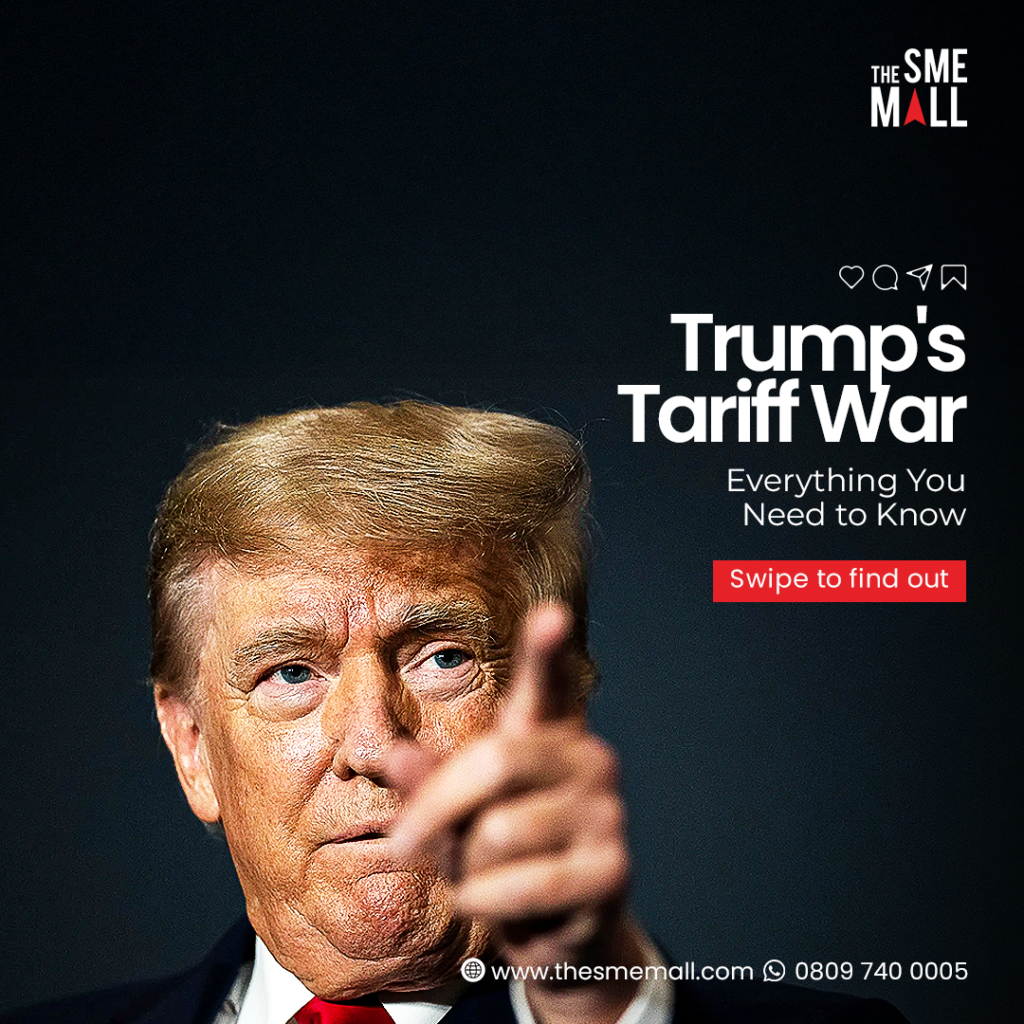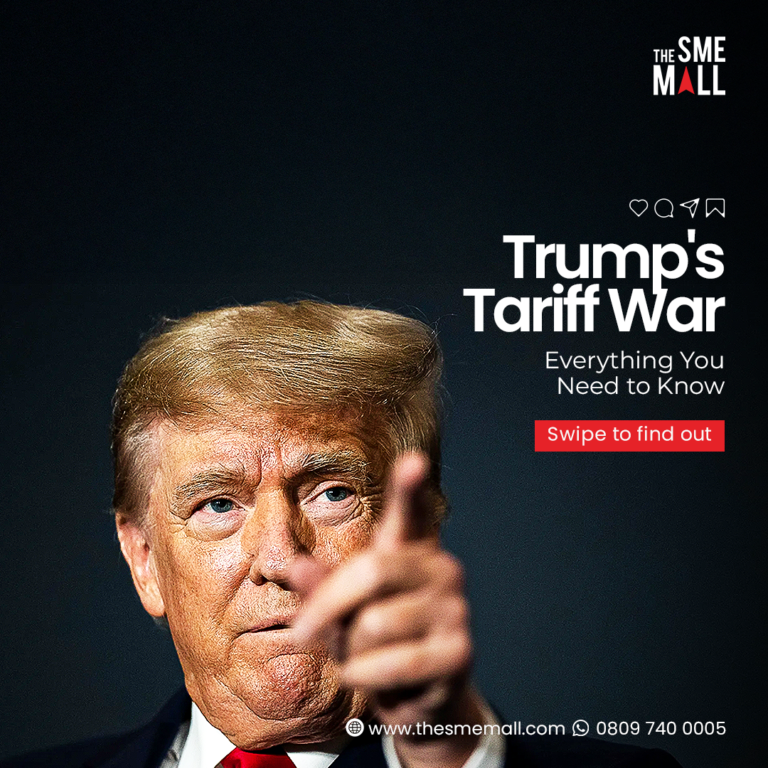How Global Tariff Wars Impact Nigerian Small Businesses: Strategies for Resilience
The Global-Local Connection: Why Nigerian SMEs Can’t Ignore International Trade Policies
In today’s interconnected global economy, what happens in Washington DC or Beijing directly affects businesses in Lagos, Abuja, and Port Harcourt. When major economies like the United States implement protectionist trade policies or engage in tariff wars, the ripple effects reach Nigerian shores faster than ever before.
For small and medium-sized enterprises (SMEs) across Nigeria, these international trade tensions aren’t abstract foreign policy discussions, they’re tangible business challenges that affect daily operations, pricing strategies, and long-term sustainability
Understanding Tariff Wars: A Nigerian Business Perspective
What exactly are tariff wars? These economic conflicts occur when countries impose escalating import duties on each other’s goods, typically to protect domestic industries or as retaliatory measures. The most significant recent example was the U.S.-China trade conflict during President Donald Trump’s administration (2017-2021), which resulted in:
Over $450 billion in increased tariffs between the world’s two largest economies
Disrupted global supply chains across multiple industries
Increased volatility in commodity prices worldwide
Why should Nigerian entrepreneurs care? Because approximately 40% of Nigerian SMEs rely on imported goods for their operations, whether it’s technology components from China, manufacturing equipment from Europe, or raw materials from various Asian markets.
When global tariffs increase, the consequences for Nigerian businesses include:
Higher import costs that squeeze already thin profit margins
Supply chain disruptions affecting inventory management and production timelines
Foreign exchange challenges as naira volatility compounds pricing uncertainties
The Real-World Impact on Nigerian Small Businesses
For concrete perspective, consider how global tariff wars affect different sectors of Nigeria’s SME landscape:
Tech and Electronics Businesses
Nigerian tech startups and electronics retailers face increased hardware costs when importing components or finished products from tariff-affected countries. A Lagos-based computer accessories shop might see profit margins shrink by 15-20% when tariffs force wholesale prices upward.
Manufacturing SMEs
Small manufacturers importing raw materials or machinery face production cost increases that make competing with larger enterprises even more challenging. A furniture maker in Abeokuta might need to raise prices by 10-15%, potentially losing price-sensitive customers.
Fashion and Textile Businesses
Apparel businesses relying on imported fabrics or accessories experience supply chain uncertainties and price fluctuations. A fashion label in Kaduna might face inventory shortages when their Chinese suppliers prioritize less tariff-affected markets.
Strategic Responses: How Nigerian SMEs Can Build Resilience Against Global Trade Shocks
While Nigerian small businesses cannot control international trade policies, they can implement strategic measures to mitigate their impact:
1. Supply Chain Diversification
Avoid single-country dependency by identifying alternative suppliers across different markets. Consider:
Exploring emerging markets like Vietnam, Bangladesh, or Ethiopia for manufacturing inputs
Investigating intra-African trade opportunities through the African Continental Free Trade Area (AfCFTA)
Developing relationships with multiple suppliers across different regions
2. Market Intelligence and Policy Monitoring
Stay informed about global trade developments that could affect your business:
Subscribe to international trade newsletters focused on African market impacts
Join industry associations that provide timely updates on sector-specific trade issues
Utilize trade data analytics tools to identify emerging patterns and potential disruptions
3. Financial Preparation and Risk Management
Strengthen your business’s financial resilience against external shocks:
Develop flexible pricing strategies that can absorb some increased costs
Explore trade financing options specifically designed for import-dependent businesses
Consider foreign exchange hedging instruments to manage currency volatility risks
Maintain stronger cash reserves to weather temporary supply chain disruptions
4. Local Sourcing Initiatives
Reduce import dependence where feasible:
Identify local alternatives for previously imported materials or components
Partner with Nigerian manufacturers and suppliers to develop domestic alternatives
Participate in government-backed local content development programs
Consider vertical integration to control more of your supply chain
The Strategic Imperative: Global Thinking for Local Business Success
For Nigerian SMEs to thrive in today’s globally connected marketplace, international awareness must become a core business competency. Successful entrepreneurs recognize that:
Trade policies in distant countries directly impact business costs and opportunities in Nigeria
Proactive adaptation to global market shifts yields competitive advantages over reactive competitors
Strategic resilience requires ongoing monitoring and response to international economic developments
Expert Support for Nigerian SMEs Navigating Global Uncertainties
At The SME Mall, we specialize in helping Nigerian businesses build resilience against international economic uncertainties. Our services include:
Trade Impact Analysis to assess your specific vulnerability to global trade tensions
Supply Chain Diversification Consulting to identify and develop alternative sourcing options
Financial Strategy Development to protect your business during periods of trade instability
Market Intelligence Reporting focused on trade policy developments affecting Nigerian businesses
Ready to Strengthen Your Business Against Global Trade Uncertainties?
Contact our advisory team today to schedule a business resilience assessment. Together, we’ll develop strategies to ensure your business not only survives but thrives despite global economic uncertainties.



